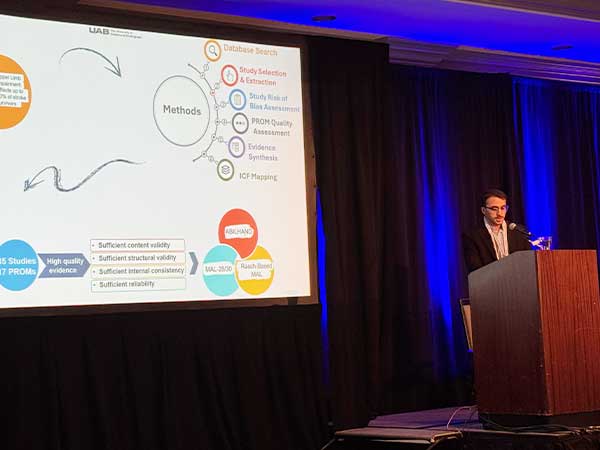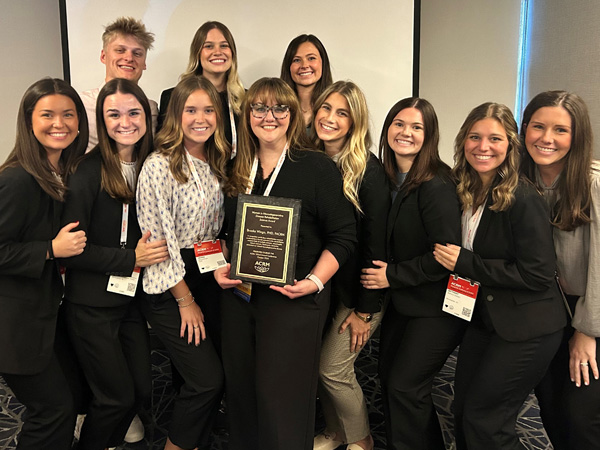 Dr. Brooks WingoDr. Brooks Wingo was a clinical social worker, looking for solutions for her patients who experienced weight gain as a side effect for a new and effective psychosis medication, when she decided to marry her interests and get a doctorate in health education and promotion from UAB’s School of Public Health.
Dr. Brooks WingoDr. Brooks Wingo was a clinical social worker, looking for solutions for her patients who experienced weight gain as a side effect for a new and effective psychosis medication, when she decided to marry her interests and get a doctorate in health education and promotion from UAB’s School of Public Health.
Now, with backgrounds in behavioral medicine and behavioral science, she is making a massive impact for people with disabilities.
Highlighting her breadth of accomplishment, Wingo received the UAB SHP 2022 Faculty Award for Excellence in Scholarship even prior to receiving a $3.9 million grant from the U.S. Department of Defense to study the impact of diet on people with multiple sclerosis.
“She has contributed to the areas of lifestyle interventions for cardiometabolic risk reduction in people with physical disabilities and complex medical conditions,” her nominator said at the SHP faculty awards.
After earning her doctorate, Wingo completed a postdoc in the department of nutrition sciences, looking at weight management in older adults, when Dr. Jim Rimmer introduced an idea interesting to Wingo.
“That was when Jim was coming onboard, and he was like, ‘Have you ever thought about working in people with disabilities?’ And I was like, ‘Huh, I have not,’” she recalled with a laugh. “So, I did what Jim loves to do, which is kind of pull people over and transitions them to doing whatever they do – but with disabilities.”
As Wingo says, the department of occupational therapy adopted her, and she was off and running with the same area of science, but now inclusive of populations that have been underrepresented int the past. Her first grant with the National Institute of Health used the ketogenic diet as an intervention for people with spinal cord injuries.
Some of Wingo’s other research efforts, including grants from Paralyzed Veterans of America and the National MS Society, have looked at the impact of dietary patterns on cardiometabolic health and secondary symptoms in adults with spinal cord injury and multiple sclerosis. She has also adapted these interventions for adults with these conditions for telehealth delivery, increasing accessibility.
Wingo is now bringing her experiences into the $3.9 million DOD grant for a multi-site study of two interventions for people with MS who are overweight or obese.
One of the dietary interventions being studied is a low-glycemic index diet, which is a moderate amount of carbs. The purpose of this intervention is to see if and how the quality of carb impacts the subjects, so half the participants will have whole-food carbs, and the other half will follow a standard intake with processed carbohydrates. And just about any physical measure that can be taken on impact will be measured, from pain and fatigue to brain imaging and bloodwork.
In the second half of the study, both groups are split in half again with a reduction by 500 calories a day to create for groups: high-quality, weight-loss; low-quality, weight loss; high-quality, weight gain and low-quality, weight gain. All the same measures will be taken.
“So, then we can end up saying if you do lose weight, do you have to lose weight to get the benefits, and if you do lose weight and get the benefits, does losing weight from eating fruits and vegetables any different from losing weight on Snicker’s and candy bars? And what’s the impact? Is one preferential to reduce inflammation?”

